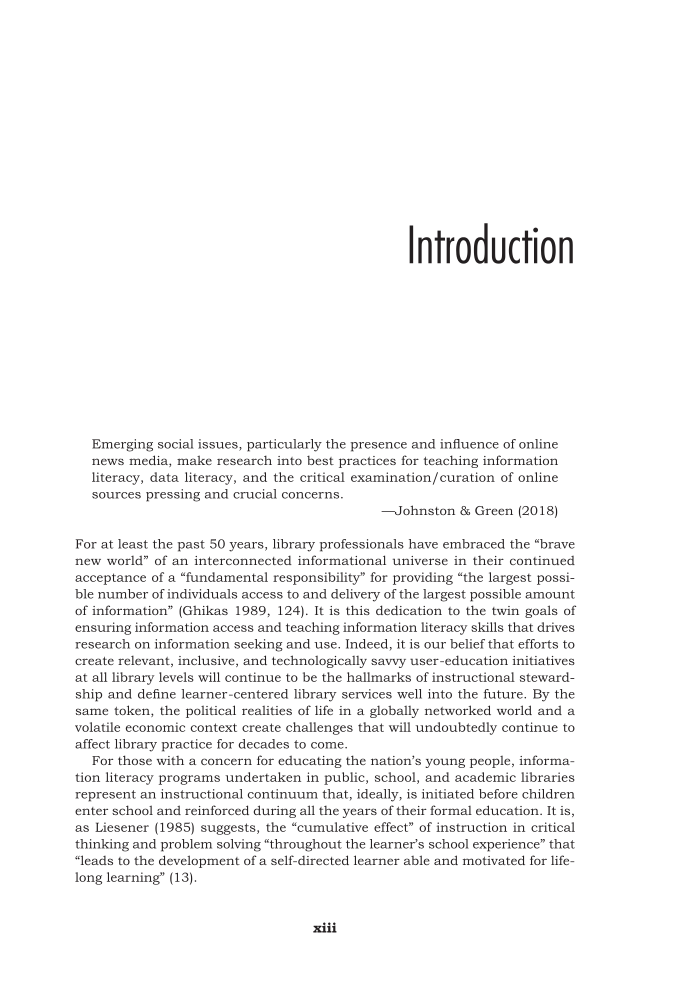xiii Introduction Emerging social issues, particularly the presence and influence of online news media, make research into best practices for teaching information literacy, data literacy, and the critical examination/curation of online sources pressing and crucial concerns. —Johnston & Green (2018) For at least the past 50 years, library professionals have embraced the “brave new world” of an interconnected informational universe in their continued acceptance of a “fundamental responsibility” for providing “the largest pos si ble number of individuals access to and delivery of the largest pos si ble amount of information” (Ghikas 1989, 124). It is this dedication to the twin goals of ensuring information access and teaching information literacy skills that drives research on information seeking and use. Indeed, it is our belief that efforts to create relevant, inclusive, and technologically savvy user-education initiatives at all library levels will continue to be the hallmarks of instructional steward- ship and define learner-centered library services well into the future. By the same token, the political realities of life in a globally networked world and a volatile economic context create challenges that will undoubtedly continue to affect library practice for decades to come. For those with a concern for educating the nation’s young people, informa- tion literacy programs undertaken in public, school, and academic libraries represent an instructional continuum that, ideally, is initiated before children enter school and reinforced during all the years of their formal education. It is, as Liesener (1985) suggests, the “cumulative effect” of instruction in critical thinking and problem solving “throughout the learner’s school experience” that “leads to the development of a self-directed learner able and motivated for life- long learning” (13).
Document Details My Account Print multiple pages
Print
You have printed 0 times in the last 24 hours.
Your print count will reset on at .
You may print 0 more time(s) before then.
You may print a maximum of 0 pages at a time.





































































































































































































































































































